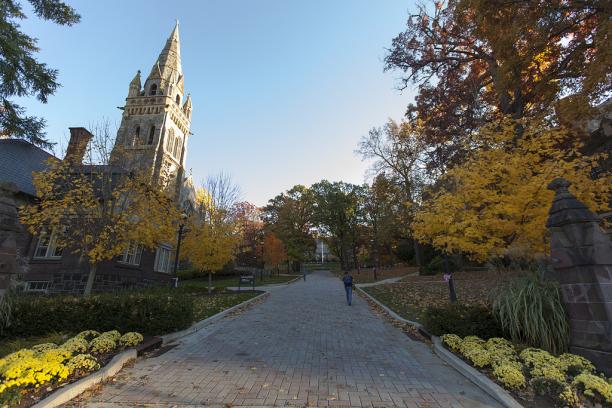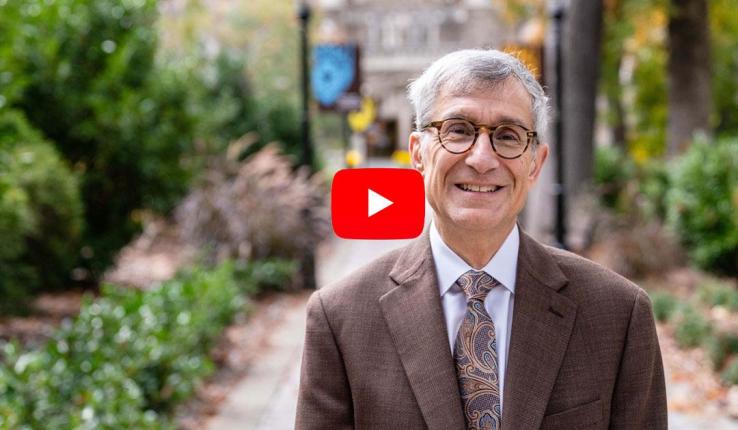Lehigh launches Year Two of climate survey

The Lehigh Survey, a comprehensive effort to assess the progress being made by Lehigh in many areas related to diversity and inclusion, will be open from Oct. 27 until Nov. 10.
On Thursday, October 27, Lehigh’s faculty, staff and students will be invited to complete the 2016 Lehigh Survey online. Unique links to the survey will be sent via email at that time; The Lehigh Survey will remain open until November 10.
Last year, Lehigh launched its first comprehensive, faculty-designed effort to assess the progress being made in many areas related to diversity and inclusion. The Lehigh Survey collects experiences, opinions and beliefs about the campus community.
The impetus for the survey was the September 2014 Voluntary Resolution Agreement that Lehigh entered into with the Office for Civil Rights (OCR) of the U.S. Department of Education. The agreement was the resolution of a Title VI complaint regarding the defacement of UMOJA House that included racist comments. Among the Voluntary Resolution Agreement’s requirements is a provision that Lehigh conduct a climate survey annually for at least three years (2015-2017).
Karen Salvemini, the University’s Equal Opportunity Compliance Coordinator, said that the survey helps the university “take stock of where we are in terms of the presence of harassment on campus and the effects of that harassment. The data that is generated is then used to formulate responses to those issues.” Data from the 2015 survey resulted in a list of recommended actions that was then shared with OCR and the campus community in February 2016.
The intersection of 'real life' and scholarship
Last year, Inside Lehigh spoke with faculty members who were part of the team that created the survey. They recounted their desire to try to make sense of the behavior surrounding the events of 2013, including the UMOJA House defacement.
“We all have scholarship we do on our own, but we share interests in the areas of stereotyping, prejudice and discrimination,” noted Associate Professor Dominic Packer. “We meet every week and, because the events on campus were a natural fit to what we study, it became a topic of conversation.”
Associate Professor Christopher Burke said conversation soon turned to how they might help improve the campus climate by studying it and understanding it better. “We could offer our expertise while also having the opportunity to see things we study in our labs unfolding in a real life context that’s very important to us, that is, the place where we work and spend so much of our time.”
When OCR included a climate survey as part of the agreement, the faculty group saw their opportunity to make a contribution. “We contacted Jennifer Jensen (Deputy Provost for Academic Affairs), and she thought it was a great idea,” Burke recalled. “She was concerned with burdening us with the responsibility, but it was something we all really wanted to do.”
While the survey began at the behest of OCR and therefore was designed to meet its requirements, the faculty team also built in questions that enable Lehigh to have a deeper understanding of issues specific to the University’s culture.
Changes in Year Two
Another benefit to having survey design expertise within Lehigh’s faculty is the ability to make adjustments based on the prior year’s data. For instance, Burke says they have changed response options for some demographic questions to further reduce the likelihood that a respondent could be identified.
“In response to some of the comments people wrote about their experiences of harassment or discrimination, we have also reworked the questions to provide greater clarity about the nature of the experience,” he added. The updated survey will allow for reports of harassment or discrimination that did not interfere with work or learning.
Even as the survey seeks to capture the nature and amount of harassment and discrimination on campus, Burke says, “We have also added questions to better capture people’s positive experiences of social connection and thriving at Lehigh. It is possible that these kinds of factors can protect against adverse effects of harassment and discrimination.”
Salvemini believes the revisions will make for a stronger survey. “Although they are small, these improvements will allow us to clarify some questions from last year's survey and better understand the experiences of our students, faculty, and staff.”
Story by Hilary Kwiatek
Posted on:




